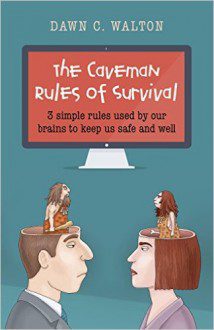By Dawn Walton
Guest Writer for Wake Up World
There is an accepted idea out there that once addicted to something, you will always be prone to returning to your addiction. This idea is reinforced by mainstream media, with constant stories of celebrities going into rehab or, even worse, taking their own lives through substance abuse. Alcoholics Anonymous encourage the idea that you will always be an alcoholic but that you can follow 12 steps to get off and stay off using alcohol. Many smokers will still answer that they are a smoker even when they have given up smoking for a while.
It is accepted that, given a certain set of circumstances, people will return to their addiction. It is also accepted that there is such a thing as an addictive personality. In fact, for many years I believed I had an addictive personality and would stay away from addictive substances because of the belief I would never be able to stop if I started.
I no longer believe that to be true. I do not think people have addictive personalities. I believe that people have a need to use some substance to help them cope. As long as there is a need to cope, there will be a need for the substance (or behaviour because gambling and shopping can also be addictions). I had a lot of difficult stuff in my childhood, if I had found something that allowed me to escape from that, I would definitely have used it. Luckily for me, nothing really worked.
[pro_ad_display_adzone id=”110028″]
To understand why it is possible to permanently overcome an addiction, we first have to look at what an addiction truly is.
What is Addiction?
Addiction is using a substance to either give you a feeling, or escape from a feeling.
For example:
Alcohol: Some people drink alcohol to feel more confident in social situations. It allows them to forget their inhibitions. Some people drink alcohol to the point where they can’t remember what happened when they were drunk. This allows them to escape from unpleasant thoughts in their head.
Drugs: Some people take drugs to relax. Drugs like cannabis are often smoked in a social environment where people are chilling out together. Some people take drugs to forget. Hard drugs like Heroin totally take you out of reality. This is often taken by people who really need to escape from the harsh realities of life.
Food: Some people eat because it makes them happy or it gives them comfort. Eating reminds them of happy times. Some people eat to create a window of nothing-ness. This is often true of people who binge eat; they often describe it as a mindless act.
So What?
If addiction serves a purpose, then the logical step to take to get rid of the addiction is to get rid of the need for it i.e. get rid of the purpose.
If we try and work on addiction as a behaviour or as a disease, we are merely treating the symptoms rather than the cause. It is like trying to get rid of a tree by chopping the branches; for a while it may seem like it’s been very effective, but eventually new branches will emerge from the root. The only way to get rid of the tree is to get rid of the roots.
How Addictions are Formed
From working with hundreds of clients, I have learnt that connections are made in our subconscious in early years. It is like a massive web, where something that happens right now can vibrate a small thread which sends a signal right back to an early memory. That early memory holds with it the instructions on how to respond. When the triggering event leads to a memory where there was a feeling of hurt, the response returned is one of protection and is designed to enable damage limitation to give you the best chance of survival.
The problem is, these memories are from when you were a child. As a child you didn’t understand the complexities of adult emotion. It was easy to feel hurt by small things, such as your father telling you that you should have done better at a test at 8 years old. If your subconscious equates that moment to feeling hurt, it will lock in a lesson from it and it will become a significant event. When, as an adult, something pattern matches to that significant event, such as feeling like you messed up a presentation at work, you get a protection response that is disproportionate to the event. Messing up the presentation becomes further evidence of how useless you are and how you will never be good enough; all because you disappointed your father at 8 years old. The other problem is that the subconscious is a primitive part of the brain. “Hurt” in the subconscious equates to physical hurt, which ultimately equates to death. So it will do anything it can to stop you getting hurt, even when the hurt is only emotional, as it is these days.
The problem is, because of the spider web of memories, if you try and address the problem in your present reality, you are not changing the early memory. You are merely getting rid of one thread. There are many routes back to the significant memory.
If the memory that keeps getting triggered is painful, then it leaves you with nowhere to go. No matter what you try, eventually something else will trigger it. This is when people turn to a substance. If you can’t avoid the thing that causes the pain, the only option you have is to dampen or escape from those feelings.
Let’s take alcohol. One day you are drinking and as you drink more and more you being to realise that you are not feeling so much. Night after night you tell yourself you won’t drink but the thoughts are in your head and won’t go away. Soon the night time drink spreads into the day when something happens and you just need to escape. Even though the consequences can have a really negative impact on you and your life, in that moment where you are hurting, you do the thing you know works. Soon it has become a habit. Even if the situation that originally made you turn to drinking has now changed, you are now in the habit of using alcohol to cope with everything. Where others may draw on their innate skills, you are now conditioned to use the substance. This is how an addiction is formed.
How Do You Permanently Overcome Addiction?
If we work off the basis that a significant memory from childhood ultimately becomes the root of an addiction, then overcoming that addiction is simply a matter of changing the significant memory. Of course, we can’t change time, but we can change our perception of it. Have you ever compared childhood memories with someone else who was there? I am sure you found that they either don’t remember the same things as you, or, if they do, they remember them differently. We remember things based on the limited understand of a child. This means if we look back on a memory, we have the benefit of hindsight. We can see something differently as an adult than we did as a child.
Now, I’m sure we all know the rules of time travel? If you go back in time and change something, then it will have an impact on the present day. So if you go and look back on a memory with your adult eyes (and maybe an external guide for perspective) then you will see what happened in a different way. If you see it differently you can change it. If you change a significant memory, it loses its significance and becomes just another of the 7,363,228 minutes that you experience by the time you are 15 years old. If a memory is no longer significant, when you vibrate a thread there is no response and no need to go into a state of protection i.e. there is no need to cope. The addiction ceases to serve a purpose.
This process takes time. Imagine you broke a leg really badly when you were 5 years old. The doctors told you that you would never be able to put a weight on that leg again. You spend the whole of your life using a crutch to take the weight of that leg. Then one day, when you are 43 years old, you come and see a therapist like me. I tell you that your leg is perfectly fine and kick the crutch away. Does that mean you are going to run out of the therapy session? No! You will need to learn that you can trust that leg. You need to learn that it can support you. There will probably be times in the early days where you still use the crutch, just to be sure. Eventually though, you will realise you don’t need it. You will never need it again.
Getting over addiction is a slow process, but it can be a permanent one, if you approach it by getting rid of the need for the substance, rather than cognitively choosing to stay away from the substance.
The Caveman Rules of Survival
A book by author and therapist Dawn Walton…
The subconscious is overdue a software upgrade. This primitive and emotional part of your brain follows rules for keeping you safe and well based on the caveman days, where sabre-toothed tigers and other predators were the biggest threat. If you have ever had a battle going on in your head between what you believe you want to do, and the part of you that seems to hold you back, then this book – The Caveman Rules of Survival – is for you.
“This is a fantastic book. It is simple, straight to the point, and offers great advice for people wishing to feel happy and get more in control of their lives.” ~ Dr. David Hamilton, best selling author.
‘The Caveman Rules of Survival’ is available on Amazon.com and Amazon.co.uk. For more information, visit TheCavemanRulesOfSurvival.com.
About the author:
Dawn Walton is an author, public speaker and therapist based in the UK. Her passion in life is to help people realise that being screwed up is normal, and that everything can change.
She is also the author of The Caveman Rules of Survival, a book that will help you understand the brain’s programming that is still leftover from our caveman days, discover why the rules are there, and change your programming to live the life you want.
- Email: [email protected]
- Facebook: DawnatThinkitChangeit
- Facebook discussion group: DawnsCave
- Twitter: @ThinkitChangeit
- Skype: @Thinkitchangeit
- Therapy site: www.thinkitchangeit.com
Recommended articles by Dawn Walton:
- You Are Depressed For a Reason… But It’s Not What You Think
- You’re Not a Mind Reader – Stop Worrying What Other People Think of You
- Even Positive People Have Negative Thoughts
- The Caveman Rules of Survival: How to Overcome Subconscious Instincts That Don’t Work in the Modern Day
- Sleep Problems Come From the Day Not the Night
- Addiction is Not Necessarily an Addiction for Life
- Fight, Flight… or Fun? Turning Anxiety into Anticipation
- Forgive Yourself For Not Forgiving Them
[pro_ad_display_adzone id=”110027″]










